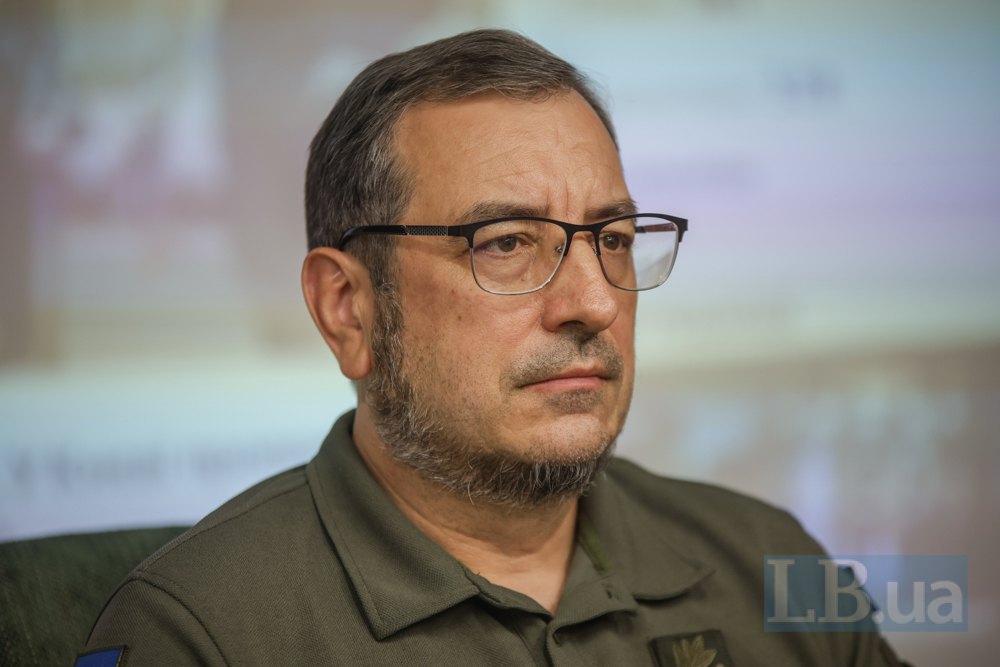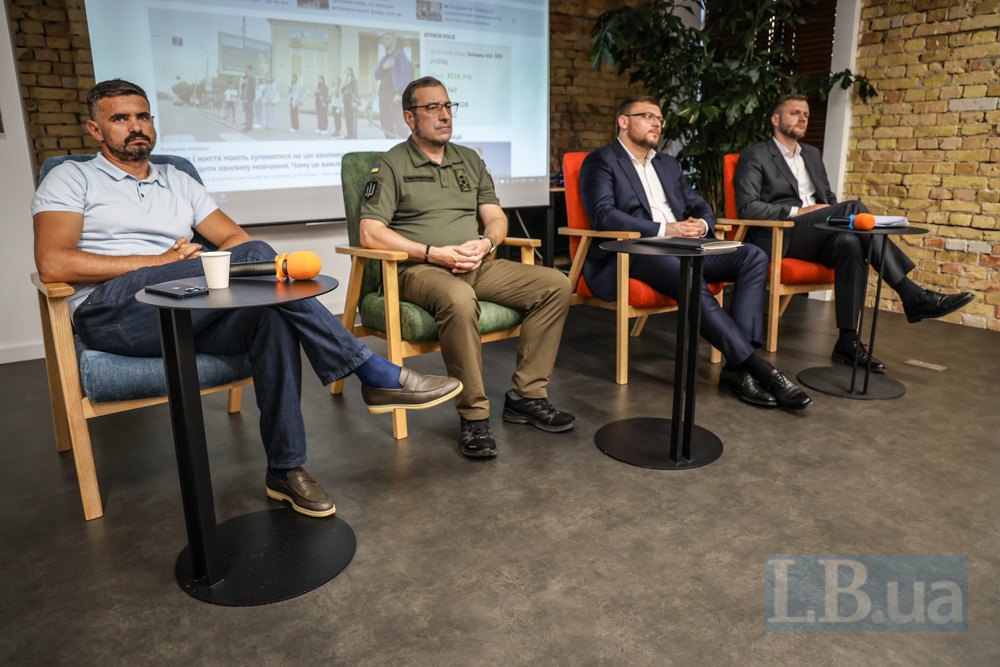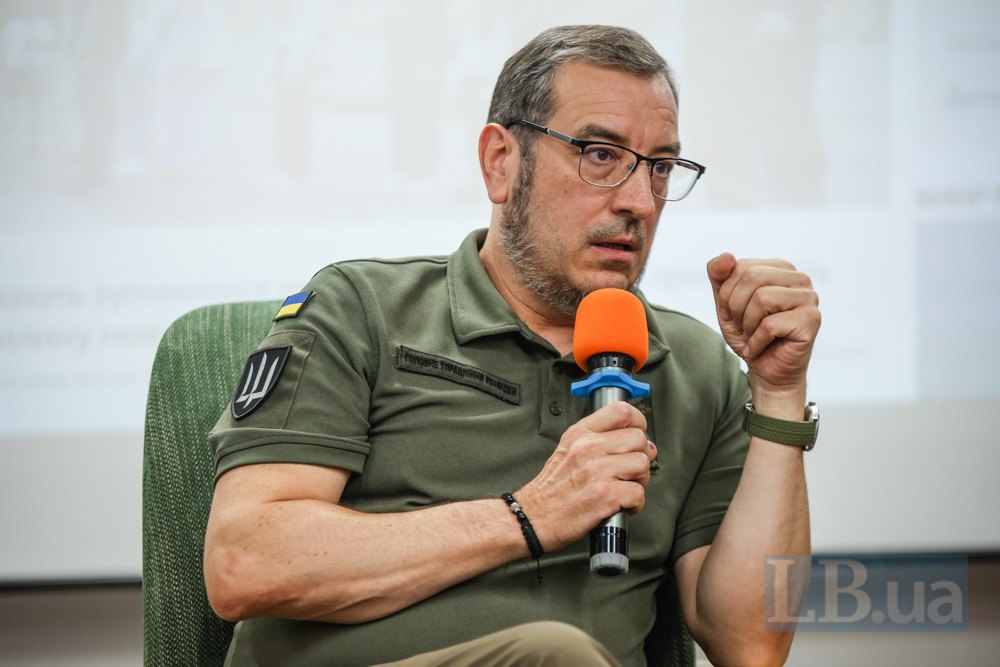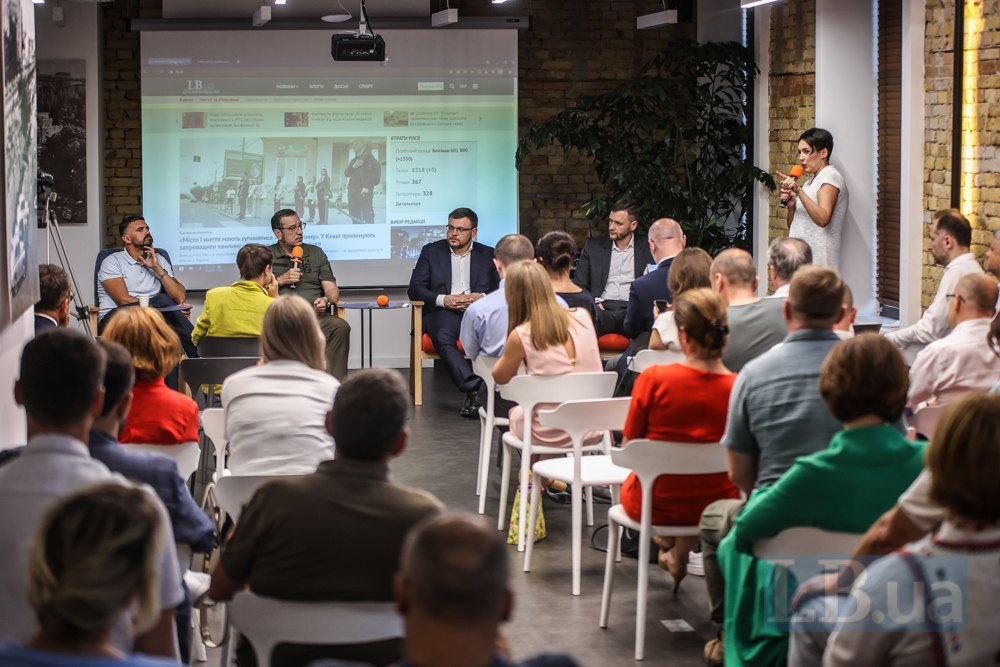
The Defence Intelligence of Ukraine started actively collecting data back in 2015, when it became clear that the propagandised civil war in Ukraine was a covert military aggression of the Russian Federation, Skibitskyy said. Since then, intelligence officers have been accumulating information about war crimes, evidence of the presence of Russian troops, Russian equipment, and everything used by the Russian Federation against our country.
‘I still remember the generals who lead the Armed Forces of the Russian Federation today - starting with General Kuzovlyev (Colonel General Serhiy Kuzovlyev, Commander of the Southern Military District of the Russian Federation - Ed.) The same Teplinskyy (Colonel General Mykhaylo Teplinskyy, Commander of the Airborne Forces, one of the commanders of Russian troops in Ukraine - Ed.) who entered the territory of Ukraine in 2014 as the head of a battalion tactical group, formed the army corps of the occupation forces - remember, the 1st and 2nd army corps of the ‘Luhansk People's Republic’ and ‘Donetsk People's Republic’. These are all generals, officers who made their careers in the war in Ukraine.
This is the first such experience (of gathering information about the enemy - Ed.). At that time, few people in the state dealt with these issues. Later, special groups were set up in the Prosecutor General's Office of Ukraine, working groups that worked directly in the field. The evidence base collected for Ukraine's claim to the International Court of Justice in The Hague against the Russian Federation was based, among other things, on data from the intelligence community of Ukraine and the Defence Intelligence of Ukraine,’ Skibitskyy said.
Today, the Defence Intelligence of Ukraine continues this work to ensure that all those who violate the law of war and international conventions are punished, the representative of the Ukrainian military intelligence added.
‘There is a lot of evidence and documents about how the aggression was planned and executed. We are collecting everything from combat documents, working maps to samples of Russian-made military equipment that are currently being used on the battlefield.
This is very hard work, but believe me, every year we file lawsuits in international courts regarding violations of international law by the Russian Federation. This includes the illegal export of grain from our territory through the Crimean peninsula, the occupied Crimea, and the occupied ports of Mariupol and Berdyansk,’ Skibitskyy stressed.
He added that many structures and state bodies are involved in collecting information, and the data obtained is used to impose national and international sanctions against legal entities and individuals of the Russian Federation.However, Vadym Skibitskyy emphasised that international judicial structures value the testimony of people who have been subjected to crimes and information obtained from open sources the most.
‘I remember the first hearings at the International Criminal Court, when the issue of the Russian Federation's support for terrorist activities was considered. There, 75 per cent of the open information came from Internet resources, research by NGOs, journalists, and various structures that collected it and provided evidence of the Russian Federation's war crimes,’ the DIU representative said.
OSINT, he added, helps to track and identify not only war criminals, but also Russian civilians involved in the war in Ukraine: designers of cruise missiles, designers of devices for aircraft bombs, etc.
‘This activity needs to be stepped up. This work should be a joint effort of both the state and society. Then there will be a result,’ the DIU said.

Portrait of the Russian occupier
The main argument for Russians to participate in the war against Ukraine is still money. However, the amount of remuneration for signing a contract has increased significantly in recent years, Vadym Skibitskyy notes.
‘If at the beginning of 2023, when the process of mass recruitment began, a person received 30-50 thousand Russian rubles in Moscow and St. Petersburg for signing the first contract, today Moscow pays 1 million 900 thousand Russian rubles. St Petersburg (which is in charge of the Pskov Airborne Division) is ready to pay 2 million 100 thousand Russian rubles for signing a contract. You know, in a year and a half, from 50,000 to 2 million. ...And only if you sign a contract at a military enlistment office in St Petersburg. Regardless of whether you live in the Urals or the North Caucasus, in any region. But you have to sign a contract here,’ said the DIU representative.
According to him, this shows that Russia has problems with recruiting military personnel under contract. It also shows that residents of large cities are being recruited to take part in the war, while villages with low wages and lives have already been devastated.
Another interesting touch is that the Russians are less boastful about their actions on the territory of Ukraine.
‘In 2022, even in 2023, in phone conversations with friends and family, it was all about bragging: how many they killed, how many they raped, what they did. Now they are more concerned that they will go on another assault and not return. There are changes in their moral understanding, but no changes in their actions,’ said the DIU representative.
Operation in the Kursk Region
As the Ukrainian military continues to conduct active operations in the Kursk Region of the Russian Federation, the DIU representative refused to comment on the operation itself. However, he added that it allows the Armed Forces to gain real combat experience in offensive operations (in addition to the operations near Kharkiv, in Kherson Region, during the 2023 offensive) necessary to liberate our territories.
‘If we talk about the information background, about the moral side of this operation, you are all witnesses that this is the top news in the world. Why? Because to conduct such an operation against a nuclear power, against a permanent member of the UN Security Council, against a state that demands negotiations only on its terms and dictates its terms around the world... This is a very powerful operation that will change a lot in the attitude of the state and the international community towards our country. The operation is ongoing,’ Skibitskyy said.
However, he noted that it is already known that Russia is planning a response to the actions of the Ukrainian Armed Forces.
‘There are plans. We know about them. The leadership of the state and the military leadership are aware of them in order to continue and successfully complete the implementation of the plans set by our troops,’ he said.
It is too early to say whether the Kursk operation will change the landscape of the war, but it has already affected the Russian Federation's plans to build up reserves, including strategic ones, and plans for operations in the temporarily occupied territories, Skibitskyy stressed.
‘There is a result, it is available to a more closed audience, but there is a positive result,’ the general concluded.

Russia's anti-Ukrainian activities abroad
Russia is actively collecting information on the temporarily occupied territories about Ukraine's military activities in order to use it for propaganda purposes, the DIU says.
In addition, according to Skibitskyy, the intelligence service is aware of the preparation of an ‘evidence base’ by the parliamentary commission of the State Duma of the Russian Federation on the treatment of children in Ukraine, on the basis of which Russian propagandists plan to justify their armed aggression to the international community using pro-Russian and Russian media in European countries.
‘Our task, as an intelligence community, is to expose such figures, such campaigns, and media outlets that take not only an openly anti-Ukrainian position, but are the Kremlin's mouthpiece for communicating their information to the international community,’ Vadym Skibitskyy said.
For example, the Russians are conducting an active anti-Ukrainian campaign in Italy - people from the LPR/DPR present documentaries and books about Ukraine's alleged crimes in Donetsk and Luhansk Regions.

Russian agents in Ukraine
The enemy does not give up its attempts to destabilise the internal situation in Ukraine, Vadym Skibitskyy stressed. Russia has many tools for this purpose, including powerful missile strikes on critical infrastructure, which have a very negative impact on society.
Russia is also well aware of our plans and actions in certain areas of the frontline, which complicates operations and armed struggle, the DIU representative said. The Intelligence Service and the Security Service of Ukraine are actively working to combat this.However, Vadym Skibitskyy believes that the Russians do not have a powerful agent in Ukraine.
‘Car arsons, leaking information about the movement of our troops, and other issues related to our military activities - they do exist. But not on the scale that some people say. We clearly understand that they do not have a powerful agency that would allow them to carry out the tasks they are planning,’ he said.
The UPR and a chance for independence
‘There will be a victory. It is unequivocal. We want it to happen soon. But there are many factors, factors that can be discussed. But the main thing is that the international community understands that we are fighting a fair fight. Not just for our independence, but for our existence,’ Vadym Skibitskyy concluded.
In his opinion, Ukraine should not lose its chance for independence from Russia today, as it did in 1918.
‘We do not want to wait another 100 years. We had a huge chance that we did not take advantage of in 1918, when there was a Ukrainian People's Republic. When we had all the necessary elements of an independent free state - even ambassadors and military attaches in foreign countries. We have no other chance. We are fighting a just war. Apparently, this is why people understand us, help us and believe in us, as we believe in ourselves,’ the DIU employee noted.








